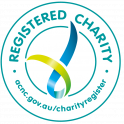Would you know if your child’s mental health was declining? More children are living with mental health issues than we realise, and some parents may not pick up signs of their own children’s mental health declining.
In this article, we look at:
- what is child’s mental health?
- the 1 telltale sign your child may be developing mental health issues
- situations that can negatively affect mental health
- why good mental health is vital
- the part you can play to support and protect your child
- where to find qualified child counselling in Melbourne.
After reading this, you’ll be more empowered to recognise the signs and take the right course of action for your child, such as finding a qualified service to provide counselling for children in Melbourne.
What is child’s mental health?
Usually, parents wouldn’t think their children need a child counselling service. However, what we know is that children face challenges every day. How your child navigates those will depend on the child’s mental health. But what is mental health in children?
When child counsellors talk about mental health in children, they are referring to a child’s social and emotional well-being, how they are going with their social connections and how they are managing their emotions.
Here’s an insightful way the Mayo Clinic describes mental health, “Mental health is the overall wellness of how you think, regulate your feelings and behave. Sometimes people experience a significant disturbance in this mental functioning.”
How can you tell if your child’s mental health is declining?
The 1 telltale sign your child’s mental health is deteriorating
There are a lot of signs a child’s mental health is declining, but the Australian Government’s Health Direct website summarises it well.
The 1 telltale sign your child’s mental health is being affected is:
- your child feels angry, upset or sad most of the time.
Everyone can feel angry, upset or sad at times but if your child feels that way most of the time, then you need to act. Poor mental health in adults can begin when they are as young as 5 years of age. If you live in Melbourne, seeking qualified counselling for children in Melbourne is a great starting point. Seeking professional support during your child’s developing years can play a major part in their future well-being.
What can have a negative impact on children’s mental health?
Every child deserves to live a safe and healthy childhood, a life that is fun and free from problems. But this is an ideal and not a reality. There are numerous challenges that can affect the mental health of a child.
These include:
- family history and genetics
- problems at school, including attendance and academics
- changes to home or school structures
- peer pressure and relationship issues
- puberty
- family conflict
- loss and grief
- physical injury, illness or pain
- sleep problems.
Why good mental health is vital
We mentioned how a child’s mental health influences the way the child grows and develops into an adult. With good mental health, a child can navigate life’s challenges and react in a positive way to enjoy a happier life.
Good mental health helps a child to:
- face challenges and deal with them effectively
- express and regulate their emotions
- feel good about themselves
- build healthy relationships with others
- adapt to change.
Can a parent proactively help their child?
The part you can play to support and protect your child
Seeing your child constantly upset or not feeling like themselves can be overwhelming for parents, especially for those who don’t know what to do to help. Reaching out for help can feel intimidating but the benefits of having a qualified counsellor to help support both your child and your family can make a huge difference. For qualified counselling for children in Melbourne, one option is to call Better Place Australia. This is a positive step forward.
You can also be proactive yourself.
Ways you can help include:
- ensuring your child has opportunities to connect with you and have fun
- making the home environment one that is safe and inviting for your child to share their feelings and be heard
- putting the interests of the child first during decision making
- ensuring your child has meaningful connections and support networks inside and outside of the home
- protecting your child from parental conflict as much as possible.
Be proactive. Normalise help seeking and let your child talk about their feelings without judgement. This can help empower your child to understand themselves and communicate their needs better.
Better Place Australia child counselling is your first step
If you live in Melbourne, the first step is to call Better Place Australia about their counselling for children in Melbourne services.
These include:
- Family mental health support
- Children and youth counselling
- Supporting children after separation (SCASP).
Child counsellors at Better Place Australia work to create safe and supportive spaces to empower children and their families and bring about positive outcomes.
Some of the skills a child can learn through Better Place Australia child counselling, include:
- increased ability to better understand and manage feelings
- decreased levels of distress and challenging behaviours
- improved communication and problem solving
- increased ability to trust and form healthy relationships.
Your first step as a parent is to contact Better Place Australia for qualified child counselling.
Get Support
Please make an enquiry if you would like to book an appointment for one of our services. Alternatively, you can live chat with us during business hours.






